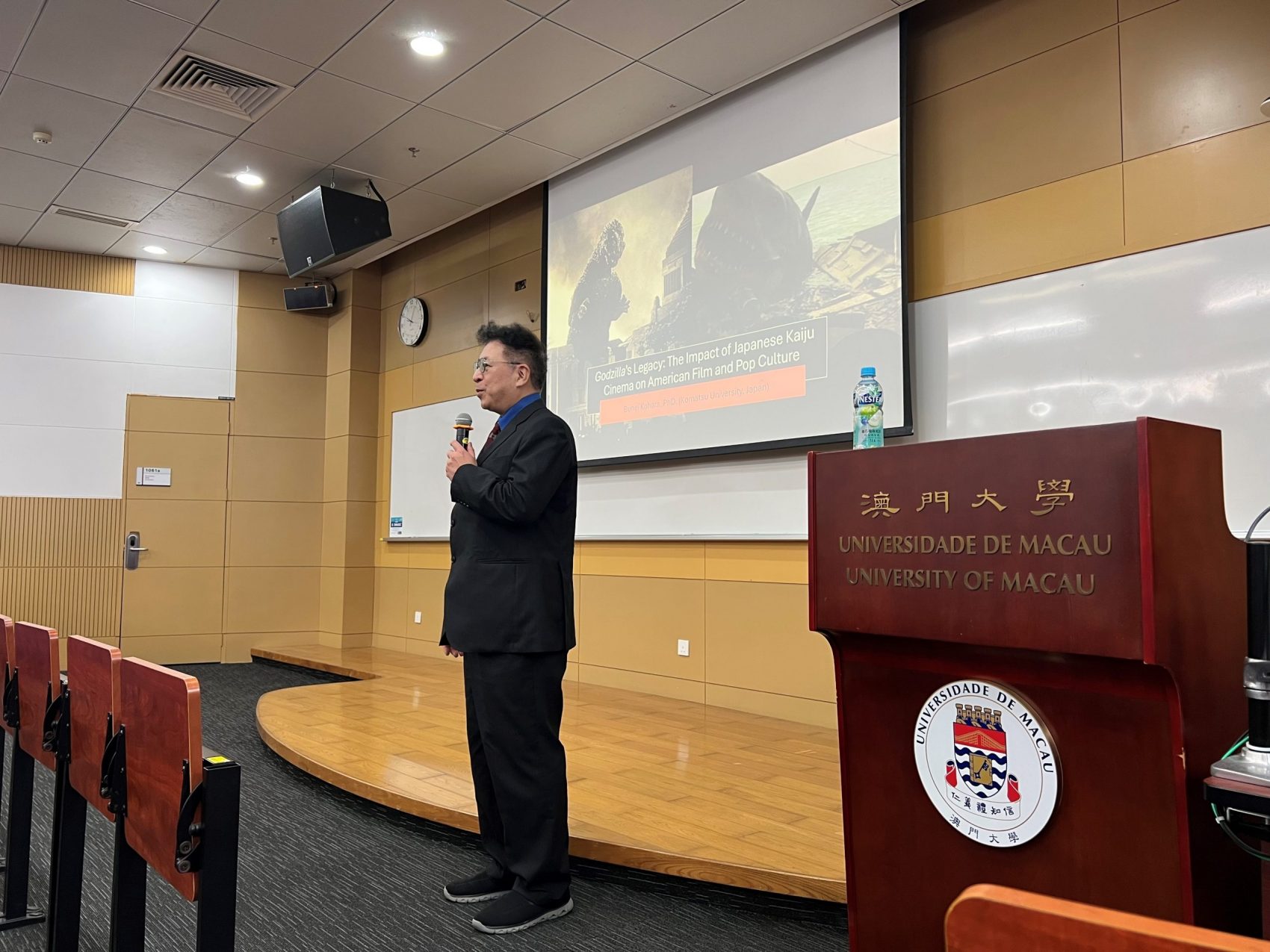On March 26, the Department of Japanese at FAH hosted a guest lecture entitled “Godzilla’s Legacy: The Impact of Japanese Kaiju Cinema on American Film and Pop Culture.” The lecture was given by Prof. Kohara Bunei of Komatsu University in Ishikawa Prefecture of Japan. Prof. Kohara is a specialist in American and Japanese film and cultural history.
Prof. Kohara’s lecture explored the influence of Japanese kaijū (sea monster) cinema as a pop culture phenomenon on American filmmaking. Focusing particularly on the impact of the movie Godzilla (1954) on the American masterpiece Jaws (1975), which celebrated its 50th anniversary this year, the lecture introduced an alternative analytical approach to explore the influence of Godzilla on American films. Named “interopticality,” this approach is rooted in visual theory and diverges from traditional methods of film studies that interpret influence allegorically and inferentially. Interopticality consists of “optical code” and “visual code” with the former referring to technical and physical elements such as cameras, lenses, film and CGI and the latter symbolic and aesthetic norms of specific cultures or eras which assign meaning to images. Utilizing this new approach, Prof. Kohara proposes new interpretations of the movies linking them to the history of World War II, atomic bombing of Hiroshima and Nagasaki, anti-nuclear weapon movement, the Vietnam War and the conquest of indigenous Indian population in American continental expansion.
Around 60 students from the Department of Japanese and other departments attended Prof. Kohara’s lecture. After Prof. Kohara’s one-hour engaging lecture, many students raised questions and observations about the lecture topic and content. The Q & A session lasted 30 mins and became a lively exchange of ideas and opinions.


